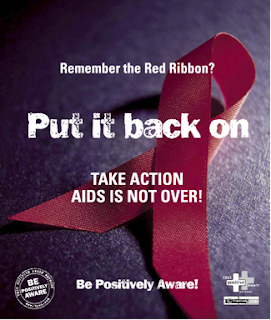
Q1) What is HIV?
--> HIV is a virus that attacks the body's immune system - the body's defence against diseases.
Q2) Are HIV and AIDS the same?
--> No. When someone is described as living with HIV, they have the HIV virus in their body. A person is considered to have developed AIDS when the immune system is so weak it can no longer fight off a range of diseases with which it would normally cope.
Q3) How is HIV passed on?
--> HIV can be passed on through infected blood, semen, vaginal fluids or breast milk.
The most common ways HIV is passed on are:
* Sex without a condom with someone living with HIV
* Sharing infected needles, syringes or other injecting drug equipment
* From an HIV-positive mother (to her child) during pregnancy, childbirth or breastfeeding (but with effective treatment and care the risk of transmission can be greatly reduced)
Q4) I don't know anyone with HIV... do I?
--> Today there are more people than ever before living with HIV in the UK, but less people report knowing someone with HIV. People with HIV generally look healthy and many do not find it easy to tell other people, so you may not realise if someone you know if HIV positive. To learn more about the different groups of people affected by HIV view the statistics.
Q5) Is there a cure for HIV?
--> No, but treatment can keep the virus under control and the immune system healthy. People on HIV treatment can live a healthy, active life, although they may experience side effects from the treatment. If HIV is diagnosed late, treatment may be less effective.
Q6) How can I protect myself and others from HIV infection?
--> Always use a condom when having vaginal or anal sex. You also may want to use a condom or dental dam during oral sex although the risk of transmission of HIV is much lower. You can get free condoms from a sexual health clinic, which you can locate at via the fpa website. Never share needles, syringes or any other injecting equipment.